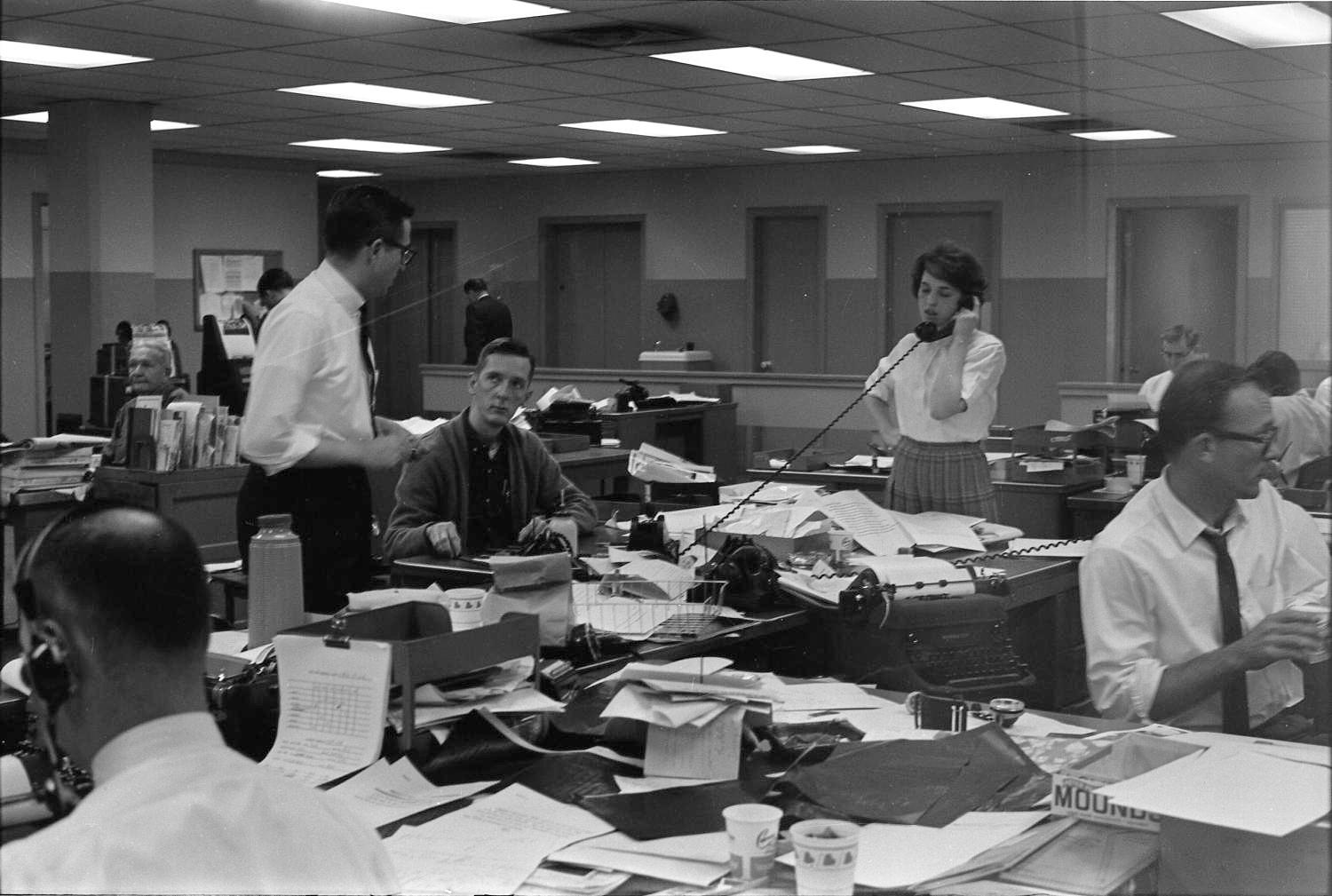I looked up from the table containing newspapers from nearby towns to see Artie Stephens about to open the front door of the Daily News-Telegram. I did not like Artie Stephens. He was county attorney of Hopkins County, Tex., not all that smart and a bit of an arrogant prick. But what did I know? I was 20 years old then and pretty full of things myself. From a desk in one corner of the front office, my father, the editor of the Daily News-Telegram, looked up as the front door opened.
Artie took two steps to the counter that separated the entryway from the front office and got right to the point. “Fred, your story in yesterday’s paper about the grand jury indictments?” I nodded, starting to feel a knot in my stomach. “You say they indicted the colored boy for first degree murder. They did not. The grand jury no-billed him.” Artie spoke in a classic East Texas twang; if you recall ever hearing former U.S. Senator Phil Gramm speak, it was the same twang: “They NO-beeled heem.”
It took maybe two seconds for those words to make sense, but when they did, I felt like the stupidest, most careless kid on the face of the earth. A “no bill” means the grand jury explicitly refused to indict the arrested man, and I had just named a black man to the 3,000 subscribers of the Sulphur Springs News-Telegram as someone charged with first degree murder. If you define libel as reckless disregard of the truth, then I had libeled.
Artie Stephens, who liked me about as much as I liked him, left with a smile on his face. I turned to face my father, who had listened to all this without saying a word. You could almost see smoke coming out of his ears. Then he spoke. “I want you to go to the courthouse as soon as it opens and verify that what Artie says is true. If it is, I want you to write a retraction and publicly apologize for our mistake. I’ll place it above the fold, where your story was yesterday. And call Cameron and ask what he thinks.” Cameron McKinney was the district attorney and based in Greenville, 35 miles to the west of Sulphur Springs, who had supervised the grand jury.
Dad had one more thing on his mind. “Fred, you are my son, and I love you. But if you ever do something like this again, you won’t be working for me any longer.” That last sentence was the worst rebuke I ever got from my father, who I loved dearly—worshiped, actually.
I walked a block of Main Street, then crossed the square to the Nineteenth Century courthouse, a gothic relic. I climbed the stairs to the third floor office of the county clerk, Valton Glover, and asked to see the grand jury’s bills. It had returned 26 of them that week. Artie was right, of course. There were 25 “true bills” that indicted individuals for various felonies. And one “no bill” that explicitly said it was not indicting anyone for first-degree murder. I had never, in my brief newspaper career, seen a “no bill”—didn’t even know such things existed. My mistake was to not read each indictment carefully, but to merely copy down names, ages, crimes those names were accused of and the date of the alleged crimes.
I returned to the newspaper, defeated. I called Cameron McKinney as my father ordered, hoping he knew something I did not that would change everything. Cameron and I got along well. I’d sometimes go to Greenville to take him out to dinner, inasmuch as he could no longer drive a car because he was legally blind. He in turn let me read technical books in his office about violent sex crimes. The DA came right on the phone. “Don’t worry about a thing, Fred,” Cameron said after I told him what I’d done. “This was a colored killing, a fight over a woman. The jury could have gone either way and decided it was murder in self defense. But if this man complains or threatens to sue you, I’ll recall the grand jury and we’ll indict him.”
This I relayed to my father. If anything, he became even more upset with me. What kind of excuse for your carelessness is that, he asked. He had learned that the no-longer-accused killer worked as a laborer for a construction company in Sulphur Springs. Pop was a friend of its owner. He never said as much to me, but I feel certain he called his friend, asked that he convey his personal apology to this man’s employee and explain that it was due to a stupid mistake by one of his younger employees.
Can you sink lower professionally than I just had? I don’t think so! And how does one recover from such a screwup? I never really did.

Fred—
My father fired me in front of the entire staff.